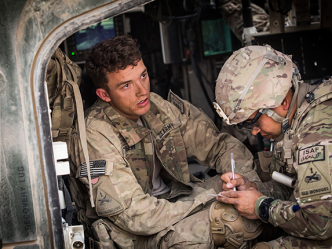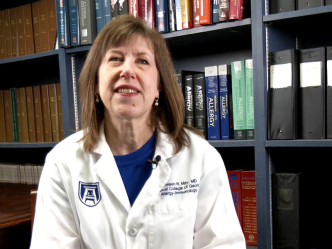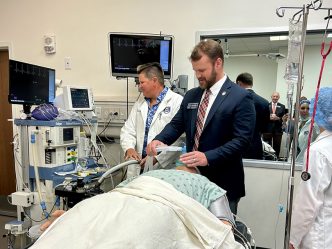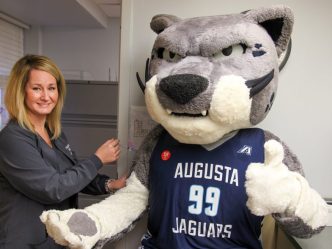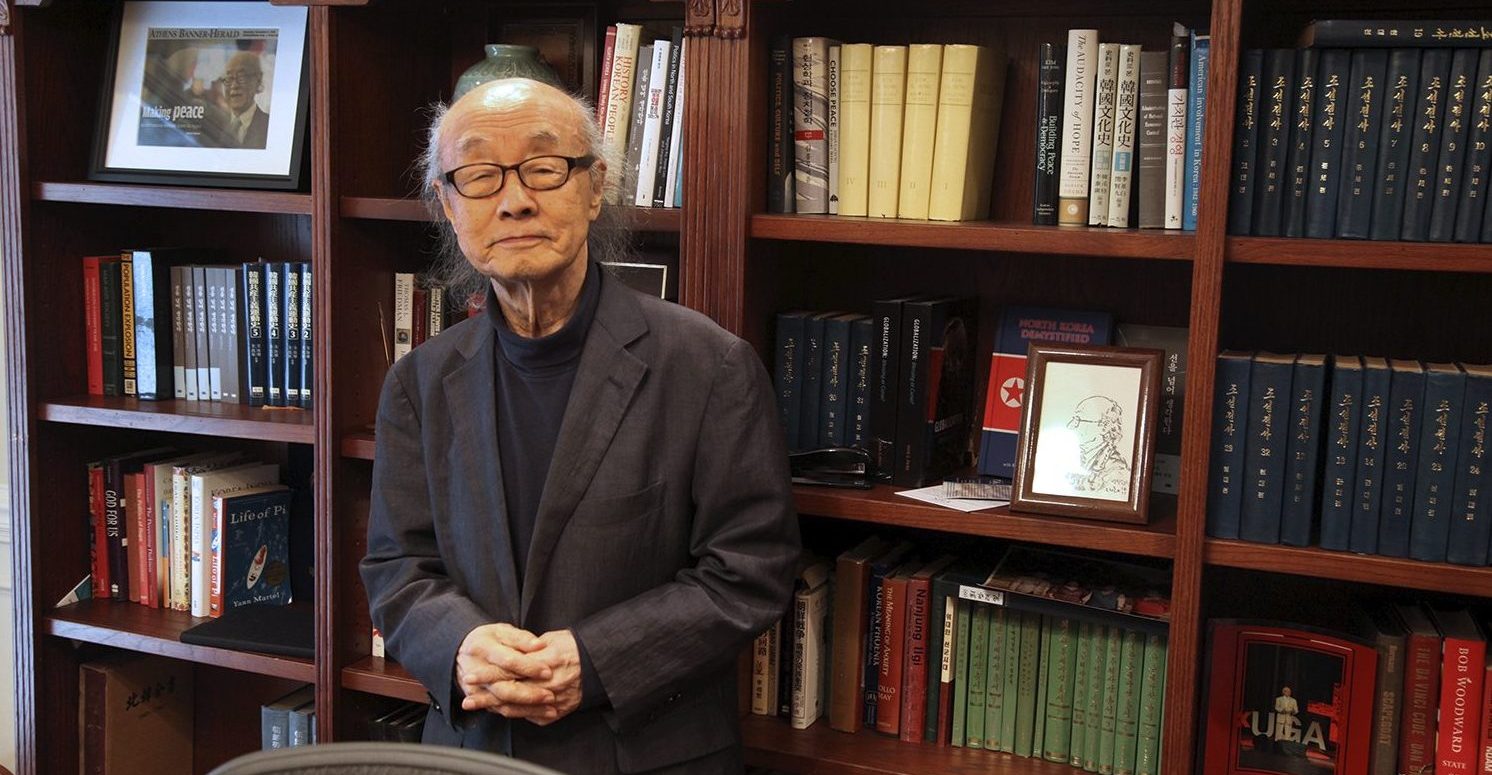
One of the world’s leading experts on North Korea owes his cardiovascular health to the Augusta University Cardiovascular Center at AU Health.
Dr. Han Park served as a professor of international affairs at the University of Georgia for 45 years before retiring in 2015. The following year, he had a heart attack requiring open-heart surgery.
“I assumed that I had a good heart,” he said. “I stayed away from cigarettes and heavy drinking. I was retired after 45 years, so that must have been a shock in my life.”
When doctors in Athens, Georgia, told him that he would need a second surgery, he relocated to Augusta on the advice of his daughter, Clara Park, an instructor in the Music Department in Augusta University’s Pamplin College of Arts, Humanities, and Social Sciences.
“He didn’t want surgery, so we decided to move him to Augusta to find a new doctor and rehab regimen,” she said.
Her father did not want a pacemaker or any other mechanical means to sustain himself.
Park joined AU Health’s Cardiac Rehabilitation program in the summer of 2016, under the care of Dr. Vishal Arora. At the time, he had an EF (ejection fraction, which measures how well the heart is pumping blood) of 25 percent, less than half of normal.
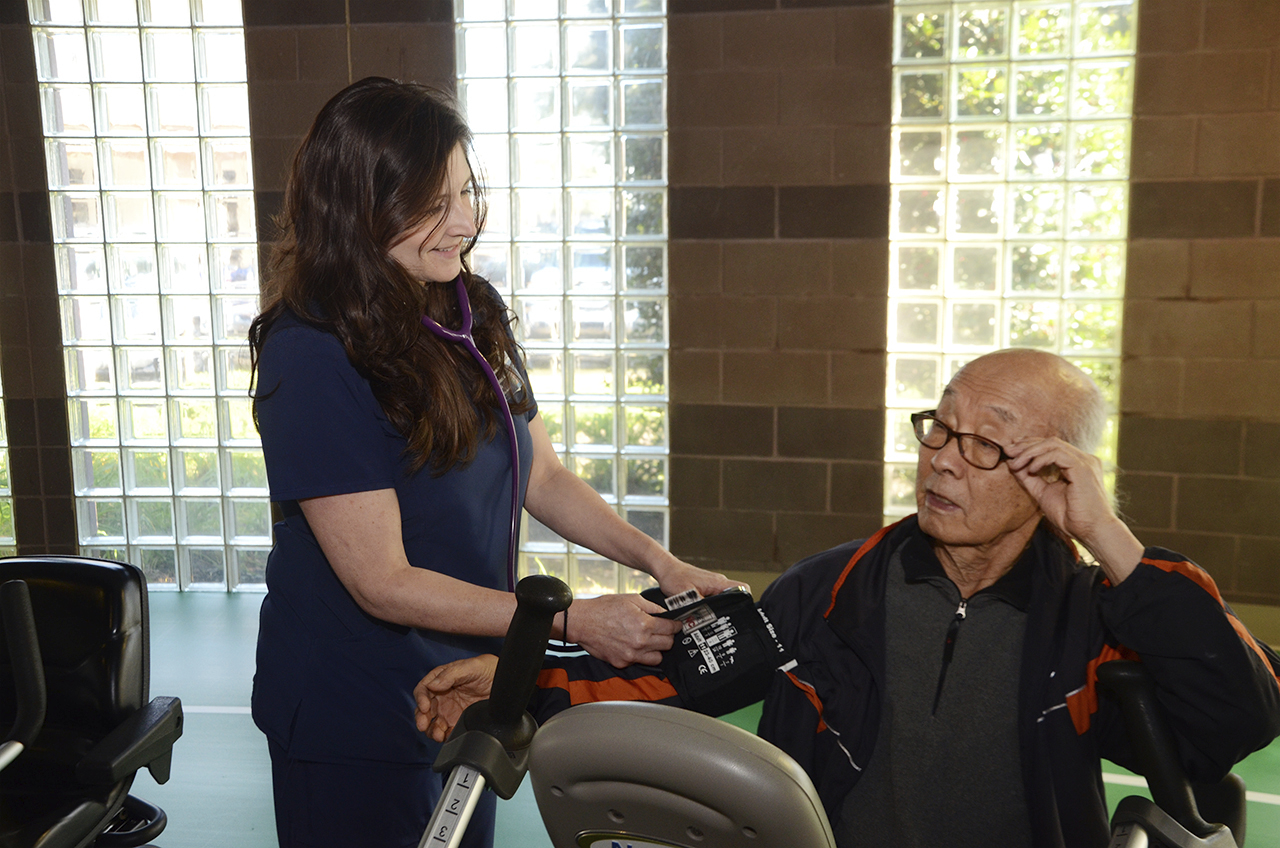
“When I first saw him, his heart function was extremely weak and he was forced to wear an external defibrillator vest,” said Arora, cardiologist and professor in the Medical College of Georgia at Augusta University.
“His mitral valve was leaking badly and they were considering valve surgery and placement of an internal defibrillator.”
After a long life as a world traveler and distinguished career as a peacemaker, Park struggled with the impact on his quality of life, a life that began in 1939 on the other side of the world.
The life of a peacemaker
His experiences as a child in Korea shaped his life.
“Very early on, I saw people killing other people,” he said. “I asked myself, why do they fight? Why do they kill?”
He explained, “I came to the United States to study peace,” which is what led him to the University of Georgia in 1970.
“All the wars I could think of, the United States got involved. So I thought, Americans know how to fight, they should know how to stop fighting. I will go to the United States.”
After 33 years, Park was able to reunite with his family in China in 1981. The long and difficult wait inspired him to work to reunite other families who had been separated.
This led to more than 50 trips to North Korea, which eventually got him involved in trying to forge an agreement between that country and the United States in 1994 (the “Agreed Framework,” which aimed to freeze North Korea’s nuclear program). He arranged for former President Jimmy Carter to make a trip there.
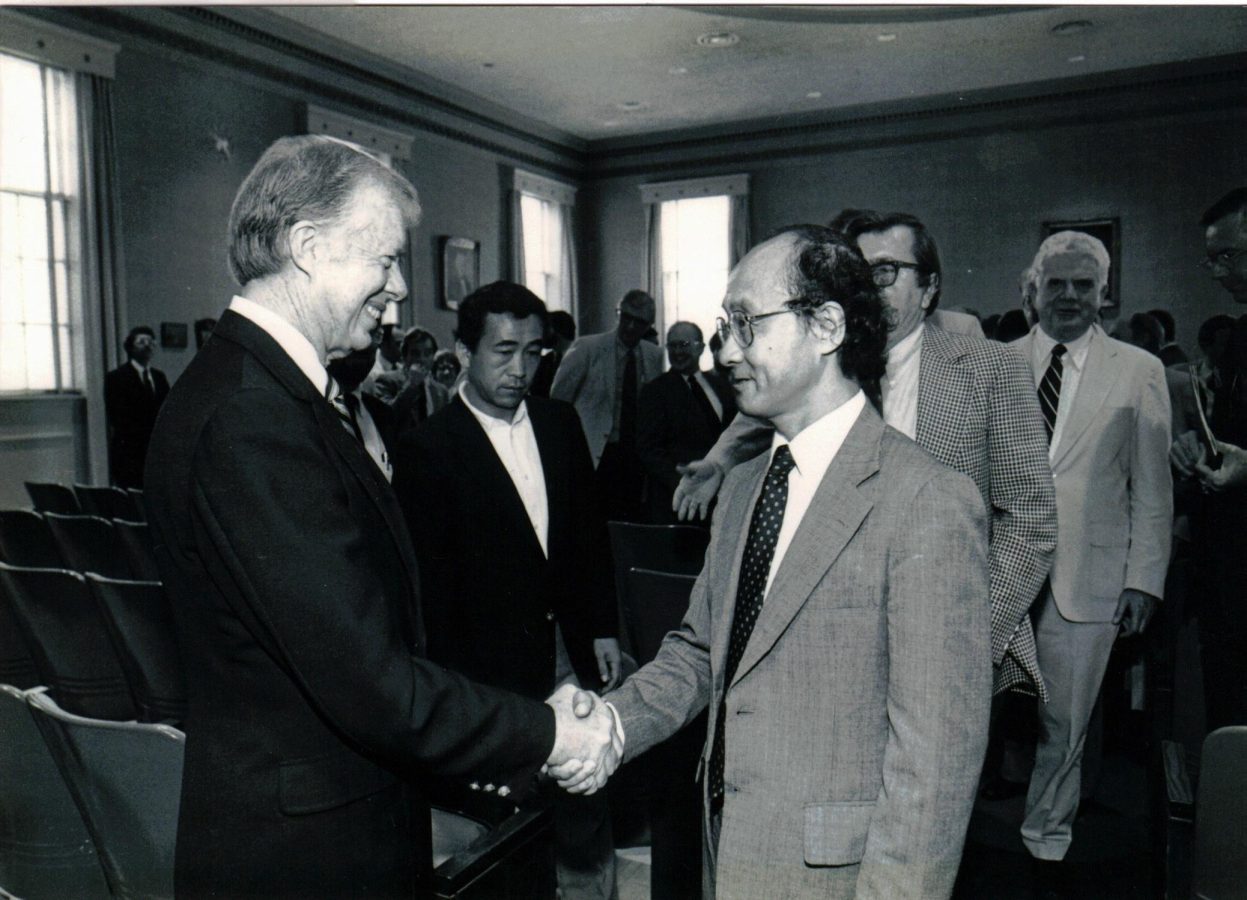
[mks_pullquote align=”right” width=”300″ size=”16″ bg_color=”#ffffff” txt_color=”#5d6063″]
DR. HAN PARK
- Family moved from China to Korea prior to the Korean War
- Professor of International Affairs and Director of the Center for the Study of Global Issues (GLOBIS) at the School of Public and International Affairs at the University of Georgia, 1970-2015
- “Peacemaker” who has negotiated unofficially between the U.S. and North Korea since the 1990s
- Has visited North Korea more than 50 times; reunited with family in 1981
- Has appeared on CNN and has been quoted by international news outlets on the subject of North Korea[/mks_pullquote]
Park’s efforts continued through the years, culminating in what he considers one of the most momentous events of his life, following the detention of American journalists Laura Ling and Euna Lee in North Korea in 2009.
Park served as an unofficial mediator between the two nations and facilitated North Korea’s request that former President Bill Clinton be sent there to negotiate for the two journalists’ release. Clinton soon met with then-North Korean leader Kim Jong-il, and Ling and Lee were released the next day.
Park was awarded the Gandhi, King, Ikeda Community Builders Prize from Morehouse College in 2010, in part for his role in helping to secure their release.

But several years later, Park faced a fight potentially for his own life. Arora had a plan of action.
“I got him started on medications for heart failure and enrolled him into a cardiac rehab program here at Augusta University,” he said.
“Our plan was to try conservative therapy in hopes that he wouldn’t need another surgery. We also wanted to get him off of the defibrillator vest and avoid the need for an implantable defibrillator.”
It wasn’t long before Park acclimated to his new regimen at the cardiovascular center.
“Knowing that this thing would help as it has, it’s a nice work environment,” he said.
“The doctors and nurses are very friendly, and the other patients are all heart patients there. It’s nice to get to know people who are experiencing similar problems.”
The rehab program allows patients to strengthen their cardiovascular health through improved diet and exercise, often involving their family and loved ones along the way.
“He was going to three sessions a week, and they started to gradually get him on an exercise regimen that he could tolerate. They then gradually increased the levels so he could continue to see the benefits of exercise and increase his endurance as well as his heart function,” said Arora.
“He took all the medications, he always came to the appointments, he did all his cardiac rehab therapy. In addition to all the work he was doing at cardiac rehab, he was doing more exercise at home. He was following his diet and after a few months, we saw that his heart function had started to improve.”
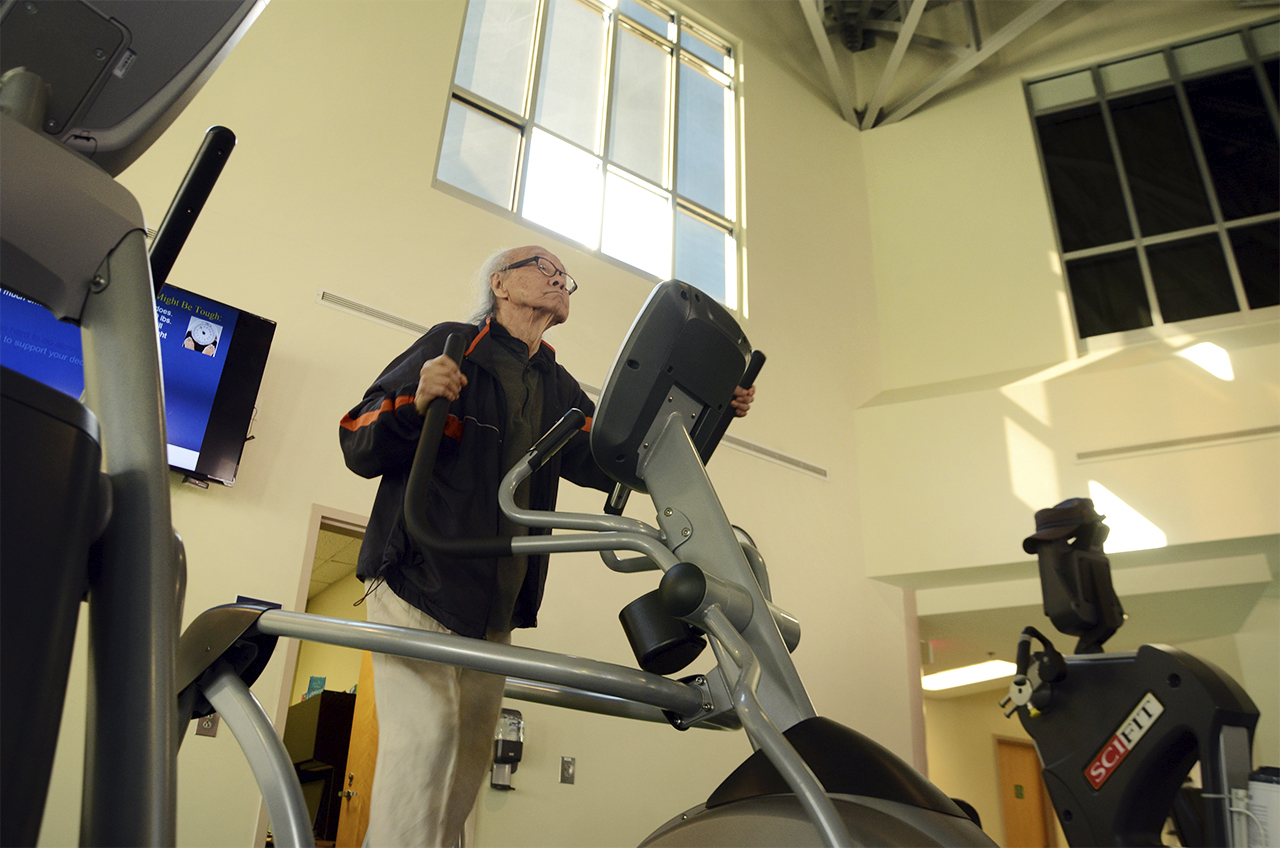
More than two years have passed since Park started the program and he is a changed man, according to Clara Park.
“The encouragement and joy he receives has made all the difference in turning his life around,” she said.
“Our family can never fully thank the staff enough for all they have done for him and continue to do.”
Park’s defibrillator vest was removed, as it was no longer needed.
Park is now in the normal range of 55 to 60 percent EF, a remarkable accomplishment considering how low it was in 2016, when doctors told him that he was unlikely to get a much higher number.
“His heart function was now completely normal,” said Arora.
“His symptoms had improved to the point that he was able to do all the activities that he likes to do.”
He was even able to travel to Asia again on two separate occasions since starting the program.
Now that the scholar is back to an active normal life, he still looks forward to going to cardiac rehab almost daily.
Clara Park even invited the team he worked with in the cardiac rehabilitation program to his surprise 80th birthday party in January.
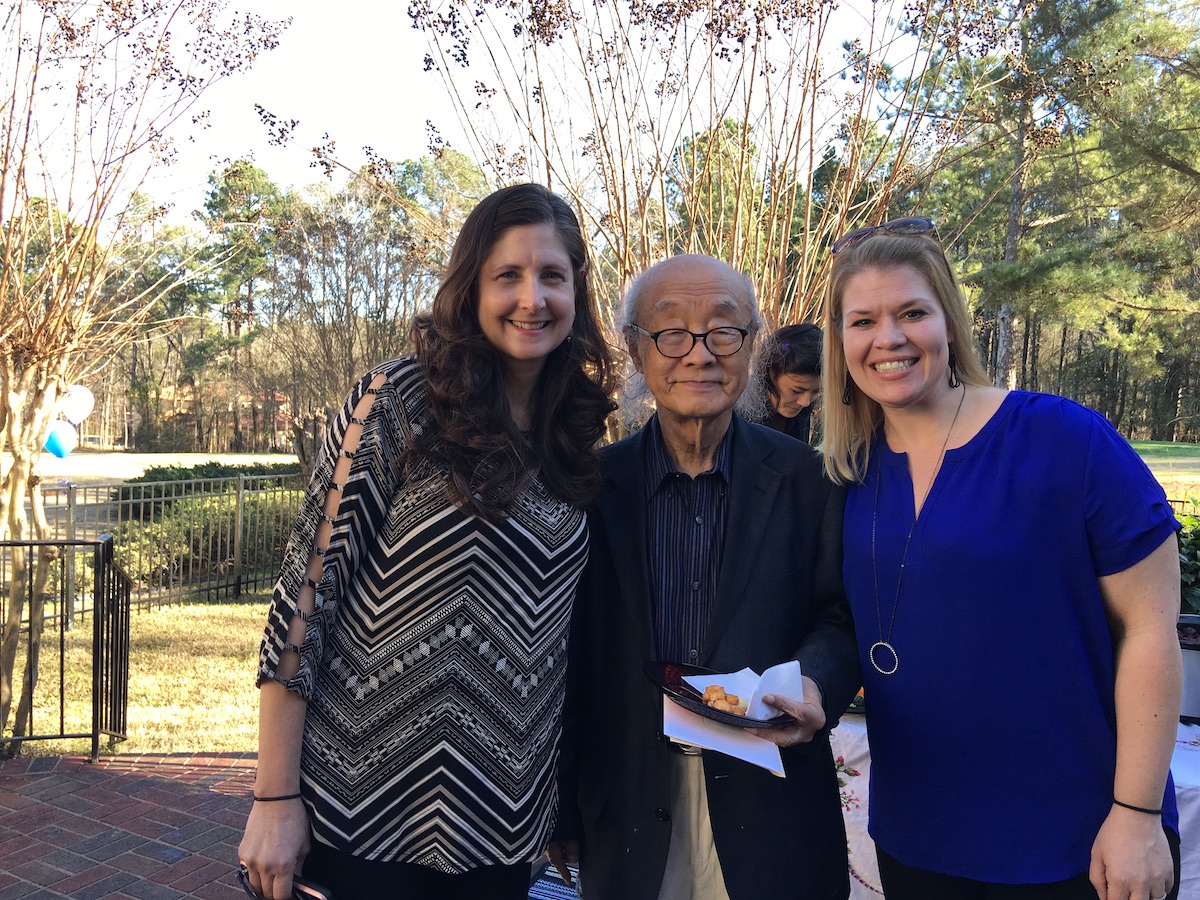
By October, Arora told Park that he didn’t need to see him for a year due to all his progress, but Park asked if he could see him anyway.
“I said, ‘I don’t want to see you for medical purposes, I want to see you as a friend.’”
For those who have worked with Park in rehab, the feeling is mutual.
“He has this calming presence,” said Lynn Cochran, RN.
“I always look forward to seeing him in clinic. He is the kindest, sweetest person and his family is the same way. He’s very disciplined, and he always comes with a smile on his face, and always a thank you every time.”

Thanks to the cardiac rehab program, Park has now seen his 80th birthday and beyond. He is currently working on his autobiography.
“I really think that his life in general gave him the strength,” said Arora.
“I think he just wasn’t ready to give up. I think the work he has done, and the work he still needs to do drove him to push harder and succeed.”
February is American Heart Month.
Visit augustahealth.org/cardio to learn about the top heart and vascular care at the Augusta University Cardiovascular Center or call us at 706-664-0584 to request a same-day appointment.
 Augusta University
Augusta University
